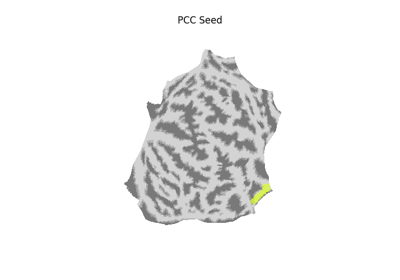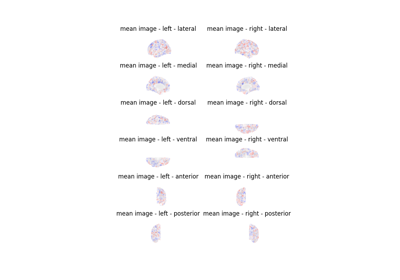Note
This page is a reference documentation. It only explains the function signature, and not how to use it. Please refer to the user guide for the big picture.
nilearn.datasets.load_nki¶
- nilearn.datasets.load_nki(mesh='fsaverage5', mesh_type='pial', n_subjects=1, data_dir=None, url=None, resume=True, verbose=1)[source]¶
Load NKI enhanced surface data into a surface object.
Added in Nilearn 0.11.0.
- Parameters:
- mesh
str, default=’fsaverage5’ Which mesh to fetch. Should be one of the following values:
"fsaverage3": the low-resolution fsaverage3 mesh (642 nodes)"fsaverage4": the low-resolution fsaverage4 mesh (2562 nodes)"fsaverage5": the low-resolution fsaverage5 mesh (10242 nodes)"fsaverage6": the medium-resolution fsaverage6 mesh (40962 nodes)"fsaverage7": same as “fsaverage”"fsaverage": the high-resolution fsaverage mesh (163842 nodes)
Note
The high-resolution fsaverage will result in more computation time and memory usage
- mesh_type
str, default=’pial’ - Must be one of:
"pial""white_matter""inflated""sphere""flat"
- n_subjects
int, default=1 The number of subjects to load from maximum of 102 subjects. By default, 1 subjects will be loaded. If None is given, all 102 subjects will be loaded.
- data_dir
pathlib.Pathorstror None, optional Path where data should be downloaded. By default, files are downloaded in a
nilearn_datafolder in the home directory of the user. See alsonilearn.datasets.utils.get_data_dirs.- url
stror None, default=None URL of file to download. Override download URL. Used for test only (or if you setup a mirror of the data).
- resume
bool, default=True Whether to resume download of a partly-downloaded file.
- verbose
boolorint, default=1 Verbosity level (
0orFalsemeans no message).
- mesh
- Returns:
- list of SurfaceImage objects
One image per subject.
Notes
For more information see the dataset description.

